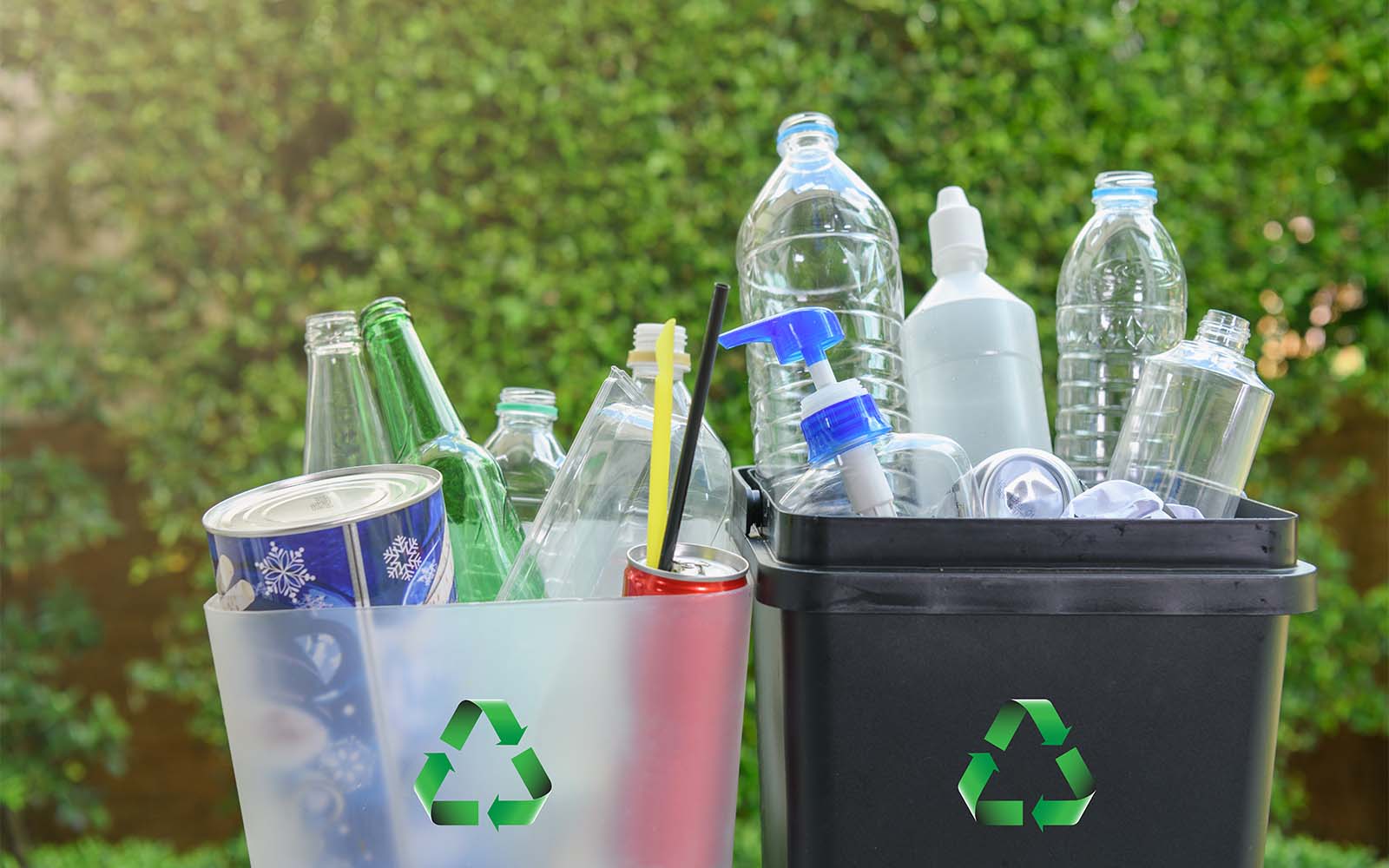A Beginner's Guide To Recycling

Recycling is one of the easiest actions you can take towards living more sustainably; however, many of us are doing it wrong because, frankly, recycling in the UK can be a little confusing.
In fact, 38% of people express uncertainty about how to correctly dispose of one or more items and this lack of knowledge is often a key barrier to recycling.
Our beginner's guide is here to help demystify the rules of recycling by explaining what can and cannot be recycled, and how.
Which Plastics Can You Recycle?
Plastics are possibly the most complex material when it comes to recycling but it is arguably the most important as UK households throw away, on average, 40kg of plastic every year.
There are seven different types of plastics found around most homes and they can be identified by the triangular symbol that they are all marked with as each type is assigned a different number between 1 and 7.
The easiest to recycle are:
- PET (1) which is used to make water bottles and food packaging and is one of the most commonly found plastics
- HDPE (2) which is used to make cleaning products and milk cartons
- PP (5) which is used to make butter tubs and microwave meal trays
Whilst the most difficult plastics to recycle are LDPE (shopping bags), polystyrene (takeaway boxes, plastic cutlery), and PVC – all of which must be recycled at specialist recycling points.
Finally, there are the plastics that can't be recycled at all, such as crisp packets, cling film and salad bags, instead these items end up in landfills.
How To Recycle Plastics
- Screw lids back on the bottle and push straws into their cartons as these items are too small to go through most recycling machines
- Squash plastic bottles to save on space and stop them rolling off the sorting machine conveyor belt
- Empty plastic bottles and thoroughly rinse out your recycling to remove any food or liquid residue as this could contaminate entire recycling loads
- Also ensure that all plastic items are dry before they end up in a recycling bin
- If it is mixed with other materials (i.e. a plastic coated coffee cup) then this will have to go in general waste rather than recycling as the materials cannot be separated
Which Metals Can You Recycle?
Metals are another commonly used material that should be recycled in order to reduce the strain on our limited resources.
Most metal items are usually found in the kitchen and almost all metals are recyclable with the most common being:
- Aluminium (drinks cans, aerosols, tin foil)
- Steel (kettles, kitchen utensils)
- Copper (cutlery, cables)
The only non-recyclable metals that can be found in everyday items are Mercury and Lead.
How To Recycle Metals
- Larger items and electronics, such as kitchen appliances and phones, will need to be taken to a specialist recycling facility
- Items will need to be emptied and rinsed to remove any food or liquid residue
- Labels can be left on as the sorting machines will ensure these are removed
Which Other Materials Can You Recycle?
Other common materials found in the home that can be easily recycled include:
- Paper (newspapers, leaflets, envelopes)
- Glass (bottles of any colour, jars)
- Card (cardboard boxes, greeting cards, egg boxes)
- Garden waste (grass, leaves, weeds)
- Food waste (if your area has a food waste recycling collection service)
How To Recycle Other Materials
- Remove any glitter and badges from greeting cards as this makes them non-recyclable
- Remove any plastic wrapping from newspapers and cardboard boxes
- Remove any food residue from paper and glass products
- Lids and caps should be left on glass jars and bottles as this reduces the chances of them getting lost through the sorting process
General Recycling Tips
Beyond understanding which materials can and cannot be recycled and how to prepare these items for recycling, there are some other simple things you can do to increase your recycling and ensure that it is always done correctly.
- Keep a recycling bin in your kitchen, or even two that you can use to divide metals and plastics from card and paper (as this is the most common way that recycling is collected in the UK). Even better, make sure it is visible and labelled so that guests use it too!
- Put a list of non-recyclable items that are typically found in your home in a visible place so that everyone in your household is aware of what doesn't go in those bins (this list is typically a lot shorter than what cannot be recycled) – on the fridge is a great place to display this.
- Do not put recycling into a black bin bag – or any kind of bag - as this item is not recyclable itself and can easily get confused with general waste. Most household recycling collection wheelie bins can be filled with no bag inside.
- If you are ever unsure, check the guidance on your local council's website.







